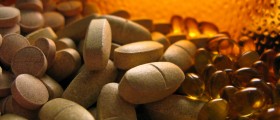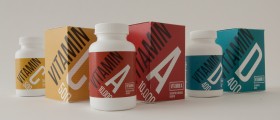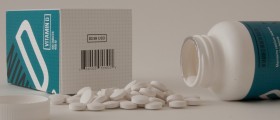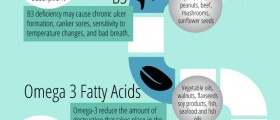
Vitamins are divided into two groups, according to their solubility. They can be soluble either in water or in fat. Vitamin C and B complex belong to the water soluble group of vitamins, while vitamins D, E, K and A are soluble in the fat. You can easily remember fat-soluble vitamins, by the acronym DEKA.
Vitamin D
This is vitamin necessary for the balance of calcium and phosphorus in the human body, especially in children. Development of healthy teeth and strong bones in children depends on the adequate amounts of vitamin D taken every day.
Children may experience long, soft bowel legs (rickets) or flattening of the back of the skull if they don’t have sufficient amounts of vitamin D available. Adults deficient in vitamin D may suffer from osteomalacia, characterized by weak muscles and bones. Deficiency of vitamin D can increase the risk of autoimmune diseases, hypertension, infections and different cancers.
Sources of vitamin D include: milk and dairy products fortified with this vitamin, oily fish and cod liver oil. Probably the healthiest way to produce vitamin D is to spend about 20 minutes (5 to 10 minutes for children) on the sun every day. Our skin requires that much time to produce adequate amount of vitamin D for our daily needs.
As all fat soluble vitamins, vitamin D can cause toxic effects if taken in large amounts. Scientists found out that 50mcg (micrograms) of this vitamin is tolerable upper daily intake for everyone older than 1 year of age. Toxicity is usually seen in people using vitamin D supplements and it may lead to excess level of calcium in the blood, nausea, vomiting, poor appetite and significantly slow mental and physical growth.
Vitamin E
Vitamin E possesses antioxidant properties and as such it can protect human body from different diseases and cancers. Deficiency of vitamin E is very rare and this can happen in premature babies or in people who can’t properly absorb the fat from the food.
Good sources of vitamin E are fresh fruits and vegetables, nuts, seeds, grains and fortified cereals, as well as some vegetable oils and margarines. Large doses of this vitamin may be harmful for people using blood thinners (anti-coagulant medications) or statins.
Vitamin K
Human blood needs certain amount of vitamin K to be able to clot properly. Besides this role, vitamin K is necessary for healthy bones as well.
Lack of this vitamin may result in bleedings, especially in young children, patients prescribed with antibiotics or blood thinners or those suffering from chronic diarrhea. Vitamin K sources include: different green vegetables, cottonseed, canola, olive and soybean oils, while animal food contains significantly less of this vitamin. Vitamin K can be toxic for the liver and your blood.
Vitamin A
Retinol or vitamin A is important for healthy eyes, bones, teeth, gene expression, cell division, reproduction and many other processes and tissues in the body. Night blindness, dry rough skin, frequent infections and problems with the development of the teeth and bones are symptoms of vitamin A deficiency.
Best sources of this vitamin are carrots, pumpkin, dark green leafy vegetables, apricots, but also dairy products, fish and liver. Multivitamin supplements may cause vitamin A toxicity and provoke: dry itchy skin, nausea, loss of appetite, dizziness, headaches, vision problems or some severe birth defects.

















Your thoughts on this
Loading...